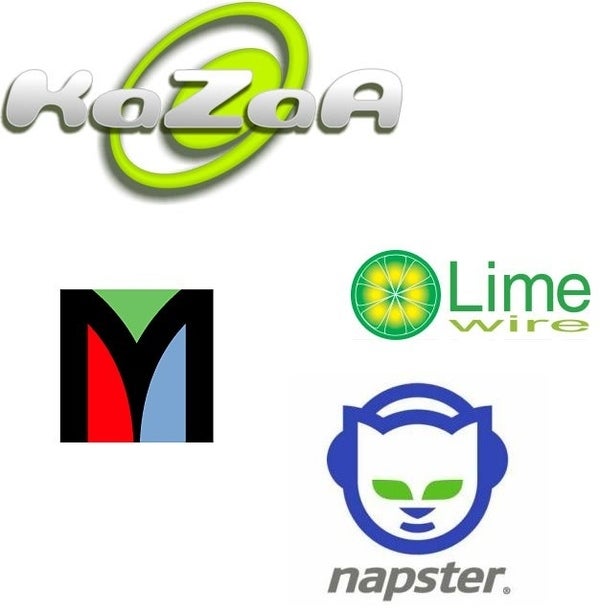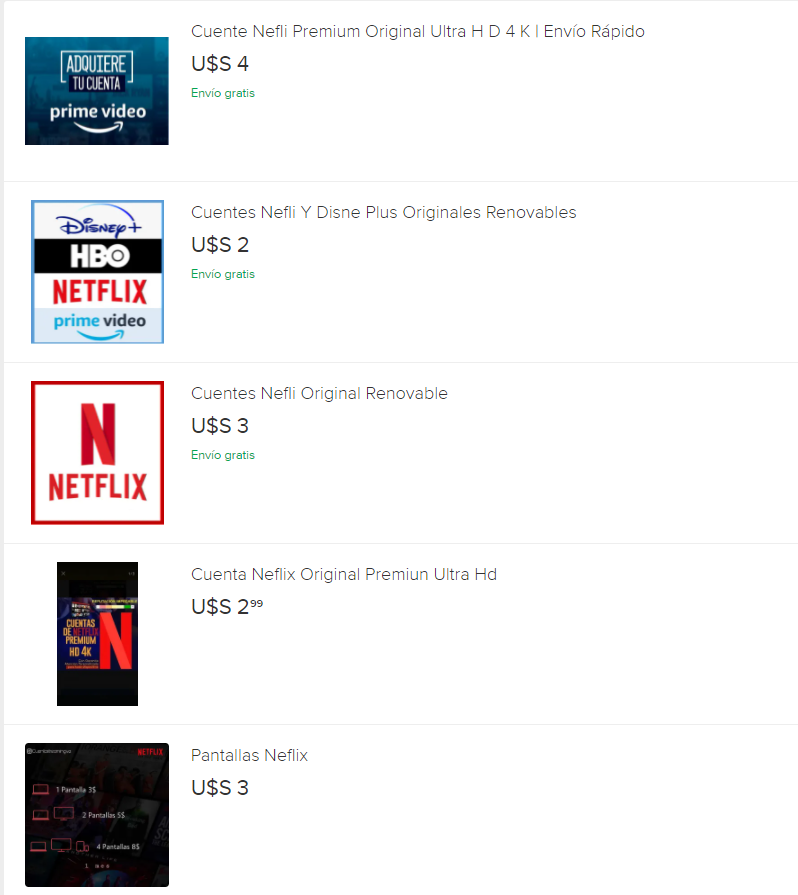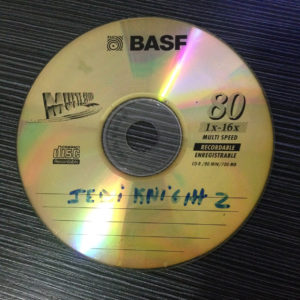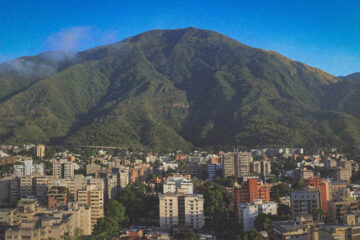Piracy is one of those things that, while obviously not part of our culture or idiosyncrasy, is something that’s intrinsically tied to life in Venezuela—heck, the whole Latinamerican region for that matter. It’s not a widespread practice born out of malice, but rather, a phenomena that must be observed through several lenses in order to understand why it is so pervasive.
Now, before I further continue, it’s probably for the best if I preface it all by saying that I am in no way advocating for piracy of any kind with these words—but let’s be real, if anyone in this country tells you that they’ve never engaged in the piracy of media of any kind then they’re absolutely lying. Be that as it may, there are far greater issues going on in this continent than the hurt feelings of certain corporations. In any case, let him who is without sin cast the first stone.
Countless are the forms of media, resources, and software that many have only been able to enjoy or use in these lands through piracy. Whether it’s due to monetary issues, region-locking and/or unavailability of official service, or simply because there’s no other options. Everyone in this country has partaken in the practice of piracy throughout their life, no exceptions.
Historically, and much like many other countries in the region, Venezuela has never been an official market when it comes to certain types of media, software, or product offerings, and in the rare exceptions that there has been, customer support tends to be extremely limited or outright non-existent, this tends to nurture the piracy that these companies then go onto whining about. There’s also the fact that intellectual property rights mean nothing here, not for local stuff, and certainly much less for foreign stuff—case in point: The Bolivarian Revolution’s continued use of the Kellog’s branding after they seized their plants and infrastructure in 2018.
The purpose of this post is that I wanna try and play the devil’s advocate for that which companies say is an unforgivable sin: piracy. I wanna do so through my own personal experiences because—casting all moral quandaries aside—I wouldn’t be the person that I am today nor I had been able to do half of what few I can do without some good ol’ yarr matey.
I. Audiovisual works & music
My early, and innocently unwillingly acts of piracy come from my parents. First, there was my mother, who, back when she was traveling back and forth between the city of Punto Fijo and Caracas as part of her studies in the field of Pain Management and Palliative Care, used to buy me bootleg VHS movies and cartoons—some came in Spanish, but others came in English. She was able to buy most of them in the airport even.
Additionally, my dad had set up this simple antenna on the roof of his house that allowed us to latch onto the signal of the nearby foreign oil workers in Punto Fijo. Through it, we got to watch a bunch of channels for free, from HBO to even Disney Channel and Cartoon Network (years before they launched their Latin American regional variants), it really was simpler times, no hoops or anything involved.
Between the VHS tapes that my mom bought or me, that antenna, and video games is how my infant self was able to obtain the core foundations of my (admittedly still broken) grasp of the English language—and without that, I wouldn’t know where I’d be at today, if I may be honest.
Back then, buying an original VHS copy of a movie, cartoon, or series was simply not worth it, unless you really, really wanted to have a legitimate copy. Hell, even renting was, in certain ways, not worth it either. Why rent a VHS tape off a store (along with any applicable membership fees) when you were able to pay less and get your very own bootleg copy?
That’s probably a question that never ran through my father’s head as he rented bootleg movies for us to watch off this small store that operated near his parents’ house. So, even when doing it the ‘right’ way and renting tapes we were simply renting pirated copies—but in the end, that’s how I was able to watch bangers such as Street Fighter, Mortal Kombat, and other 90s movies now turned into cult-films back when I was barely 6-7 years old.
Naturally, VHS was phased out by DVDs, but on the piracy side of things, blank DVDs were rather pricey here—hence, an incremental step in piracy: Video CDs, or VCDs as people colloquially referred to them. This was an acceptable compromise between price and quality, as naturally, a CD’s 700MB file size versus a DVD’s 4.7GB meant that corners had to be cut in terms of encoding quality to fit the movie in a disc or two.
Once mass-copying of DVDs became more rentable then yeah, pirated DVDs began to be sold at almost every corner, with pirated Blu-ray discs now being the norm.
The same can be said about audio CDs. Albums used to cost an arm and a leg in my youth—a burned copy that had the same songs and sounded the same, not so much. So you tell me what the average money-constrained Venezuelan citizen was going to choose. Burned CDs, along with the advent of broadband, MP3 players, and file-sharing software put artists in the hands (and ears) of so many.
Without partaking in piracy I wouldn’t have stumbled upon E.S. Posthumus and their first album, Unearthed, an album that has been extremely influential to me in the way I approach fiction writing. There was no way to even get a legitimate copy of it in this country in a store, not before, not now—and importing it was not something I could have afforded back then either.
When it comes to the piracy of television series or shows, American producers have some degree of blame for the way they mishandled their distribution of their shows in the region, often treating this market as a 2nd rate in terms of relevance.
During the 90s and most of the early 00s, Latinamerica would often get the ‘canned’ syndicalisation of these shows at a much later date than its original air date in the United States. In many cases, some series would even only air here after they’d been cancelled.
So, don’t cry ‘piracy!’ when savv Latin Americans would procure copies of it and to redistribute here way before a series aired through the ‘normal’ ways. In more recent times, regional cable TV channels have begun to show newer series either on the same release date as in other markets, or only a few days apart.
The ‘convenience’ of streaming services, be it Netflix, Spotify, or what have you, has actually placated piracy here to a certain extent, and even some of these now have official service in Venezuela even, something that in recent years would had been totally unheard of, with how reliable your internet connection is being the only limitation. Some services still need to be accessed through hoops and loops because sadly, there’s no official support in these lands.
Even so, streaming services have their own methods of ‘piracy,’ don’t forget that not everyone here has the luxury of affording say, a Netflix subscription. This is why ‘rental’ services exist nowadays, where you pay someone an amount that’s substantially less than the cost of a regular subscription for shared access to one of their accounts (or ‘screens’ as people call it here). The provider then pays for those accounts, making a small profit.
At the end of the day, the paying customer is getting affordable access to the streaming service—even though it is pretty much a violation of the platform’s terms of service.
Cinema remains as one of the cheapest and most affordable forms of entertainment, even during the collapse of our nation—or at least it was until the COVID-19 pandemic and the pseudo-dollarization that we now find ourselves in. Now it has to compete in value against streaming services, which may end up becoming the most affordable form of entertainment for my fellow battered citizens.
Piracy even goes all the way to the TV channels that the Socialist Party controls. Recently, one of the many TV channels that they control has begun to straight up air pirated content from Disney+, sometimes even with the watermarks of certain known Latinamerican pirate sites and all.
Y así, a las 5:33 p.m. de este viernes 5 de junio, TVes transmite "Star Wars Episode IX: Rise of Skywalker", que apenas fue estrenada en Disney+ hace un mes.
— Arnaldo Espinoza (@Naldoxx) June 5, 2020
¿Tendrán los derechos? pic.twitter.com/cD0f8gCYZY
II. Video Games
The one form of media where I have the most mea culpas with regards to piracy. Regardless of my infringements, without piracy I would have not been able to play as many video games in my youth. If I hadn’t obtained a pirated copy of Jedi Outcast in 2002 I would have not been able to meet people who, after nearly twenty years, are still great friends whose friendship I hold most dearly.
Console fanboys that still actually engage in console wars will probably tell you that exclusives, graphics, and all that other crap is what wins. In these lands, that are not officially supported by any console manufacturer, the console that is the easiest to pirate wins.
My old Playstation 1 was the first console I got modded to run backups for. Without that modchip I wouldn’t had been able to afford video games in the first place, as those were some rough years for my family (I was sleeping on a mattress in the floor and all that), so cheap, affordable escapism, such as Final Fantasy VIII, was all I had.
The prohibitively expensive cost of newer consoles like the PS4, PS5, Xbox One, or Xbox Series X|S, along with the ability to slap some piracy on older consoles is why used devices from past generations are still very sought upon in Venezuela, such as the Nintendo DS, 3DS, Wii, PS1, PS2, PS3, and Xbox 360.
These old consoles, along with the software or hardware required to run backups is the only alternative for many, before and after the worst years of our collapse—don’t forget that even before hyperinflation destroyed our currency people weren’t swimming in money.
The fierce Currency Control exchange laws that helped destroy our economy were also an obstacle that often pushed people to simply mod their consoles up and play pirated copies, as what was the point of having an unmodded Xbox 360 (or the og Xbox) console if you are unable to pay for Xbox live.
Furthermore, as we don’t have an official retail market for consoles and video games, stores just set arbitrary prices for consoles and games as they see fit, adding another monetary wall that deters people from being ‘100% legit.’
Free to play games and Games as a Service have come to deter people from piracy, but I wouldn’t call that a solution, that’s just companies being predatory. There are other aspects, such as game preservation, that warrant or outright justify piracy, but that’s a whole other subject worthy of its own separate discussion.
III. Software
Yup, just like video games, lotsa mea culpas to be had, but in my case, it’s just things I was in no position to afford in the first place. From the early days of me pirating Jasc Paint Shop Pro to make custom skins for my Jedi Outcast clanmates, to certain things that I use to make memes nowadays in conjunction with free software and software that I’ve legitimately purchased in recent times. I’m not out of blame here, but then again, who is in this country?
Windows is by far the most pirated piece of software here, but I’ve been running with legitimate copies for more than ten years now. The same goes for Microsoft Office, I got a legitimate copy of Office 2013 for cheap back in 2012 in a rare moment of foresight, back when I began to entertain the idea of finally giving form to what is now, Sword of the Nation (I didn’t actually get to start until 2016 though).
Same case as with Video games and music/movies, this is mostly done due to monetary reasons and lack of access to proper, official service. There are companies whose predatory and nonsensical choices have forced people to pirate their products out of necessity—or spite.
Adobe’s Creative Cloud is the most glaring example of this. Their subscription service is already predatory enough as it is, yet there are people down here who do need to use their service for their content creation, be it art, videos, audio, or what have you.
As if the costs were already steep enough, Adobe had this weird moment of overcompliance with the U.S. sanctions imposed to certain government officials here and had straight up decided to bail out of the country, leaving Venezuelan customers out of the blue—thankfully, they saw reason and held back from what would’ve been a disaster for many artists and content creators here. Had they gone ahead with that decision, piracy would’ve been the only way for a Venezuelan to use Adobe’s services while within these borders.
Yeah, at least in the case of software, there are plenty Free and Open Source alternatives out there depending on what you need. But you do what you gotta do, I’m not gonna judge anyone over it.
As I said at the beginning of this entry, I am in no way advocating for piracy of any kind, nor I’ll ever stop you from doing it, even on things that I’ll end up releasing in the future—as that would be most hypocritical of me. Piracy was, has, and will continue to be, the only alternative for many here in many regards—more so now that we’re tethering on the brink of total collapse.
That doesn’t mean all down here is piracy, and that companies should just abstain themselves from providing official service to us if and when we once again become a ‘normal’ country—on the contrary. As Gabe Newel once said, “Piracy is an issue of service, not price,” but in our case there’s credence to the price part—because in Venezuela there is a glaring economic factor to all of it.
“The easiest way to stop piracy is not by putting antipiracy technology to work. … It’s by giving those people a service that’s better than what they’re receiving from the pirates,” he also said, and as someone that has partaken in his fair share of piracy in the past, I couldn’t agree more with it.
I’ve steered away from piracy to the best of my financial ability as I’ve grown older (including all that you see here on this site and all of my serious works, which are devoid of piracy of any kind), but even so, there are still things that I enjoy that are unable to be obtained here through legal means *cough* Japanese toy show commercials, *cough* so even if I’m as legit as I can be, there are things that I’ll have no choice but to continue pirating because there simply is no other way to access them.
It’s just what it is, you draw your own moral conclusions to it. There are far greater sins and sinners out there.
Until the next one,
-Kal





